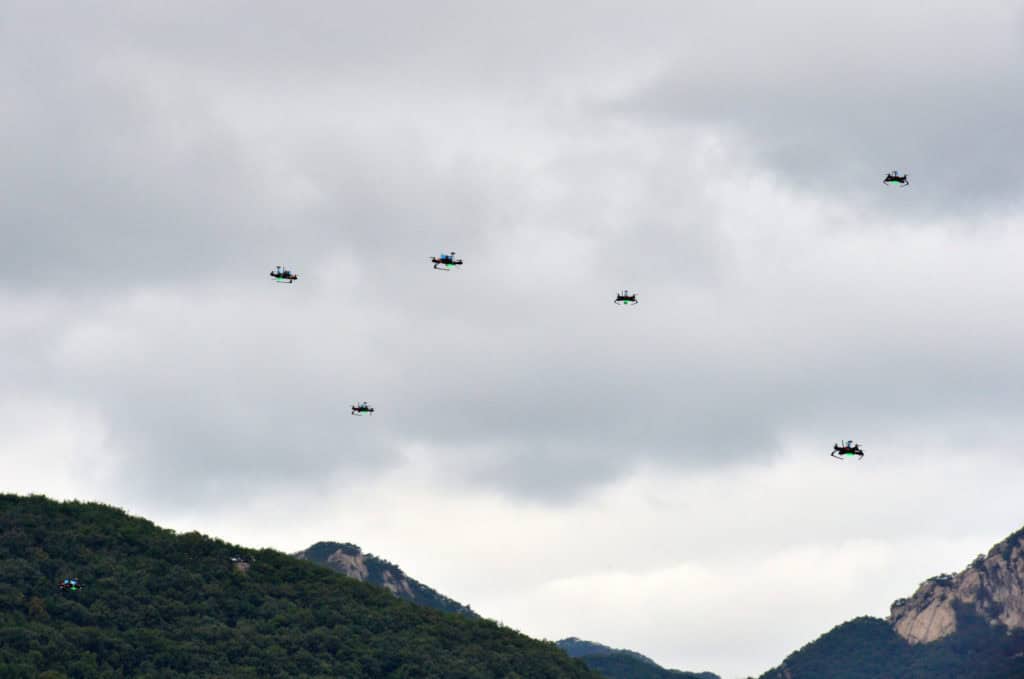
Drones would also be allowed to fly overhead and will be further integrated into national airspace.
Right on the heels of Canada introducing new, stricter regulations for drone operations, the US Department of Transportation proposed a new set of rules for drones that would allow the unmanned vehicles to fly over populated areas and operate at night. The proposal also includes a pilot program for drone traffic management that would help to integrate the aircrafts into the nation’s airspace.
Under the proposed rules, the Federal Aviation Administration would no longer require drone operators to get waivers to operate at night. Instead, it would require drones flying after twilight to have an anti-collision light that would make it visible for at least three miles. Pilots operating a drone at night would also have to undergo knowledge testing and training before being cleared to fly. According to the FAA, requests to operate at night are the most common type of waiver it receives. The agency has granted 1,233 waivers and has not recorded any reports of accidents.
The new rules would also loosen the restrictions on allowing drones to operate over people. The proposal suggests that unmanned aircrafts weighing less than 0.55 pounds could fly over populated areas without restrictions. Drones weighing more than that would require proof from a manufacturer that a malfunction wouldn’t cause severe injury if the drone crashed into a person. Larger drones also would not be allowed to fly overhead if they have exposed rotating parts or if they have any known safety defects.
Finally, the FAA announced plans to go forward with a pilot program to further integrate drones into the national airspace shared by airplane traffic. The project will run through September 2019 and will focus on flight planning, communications, aircraft separation and weather services. The program, first developed as a research project by NASA and operated as a joint effort between that agency and the FAA, will be used primarily to gather information that will help set future rules.


